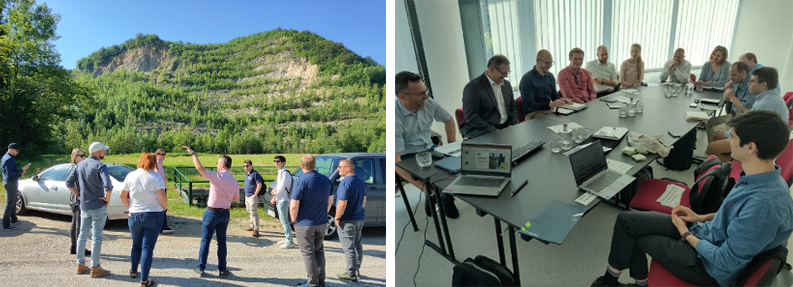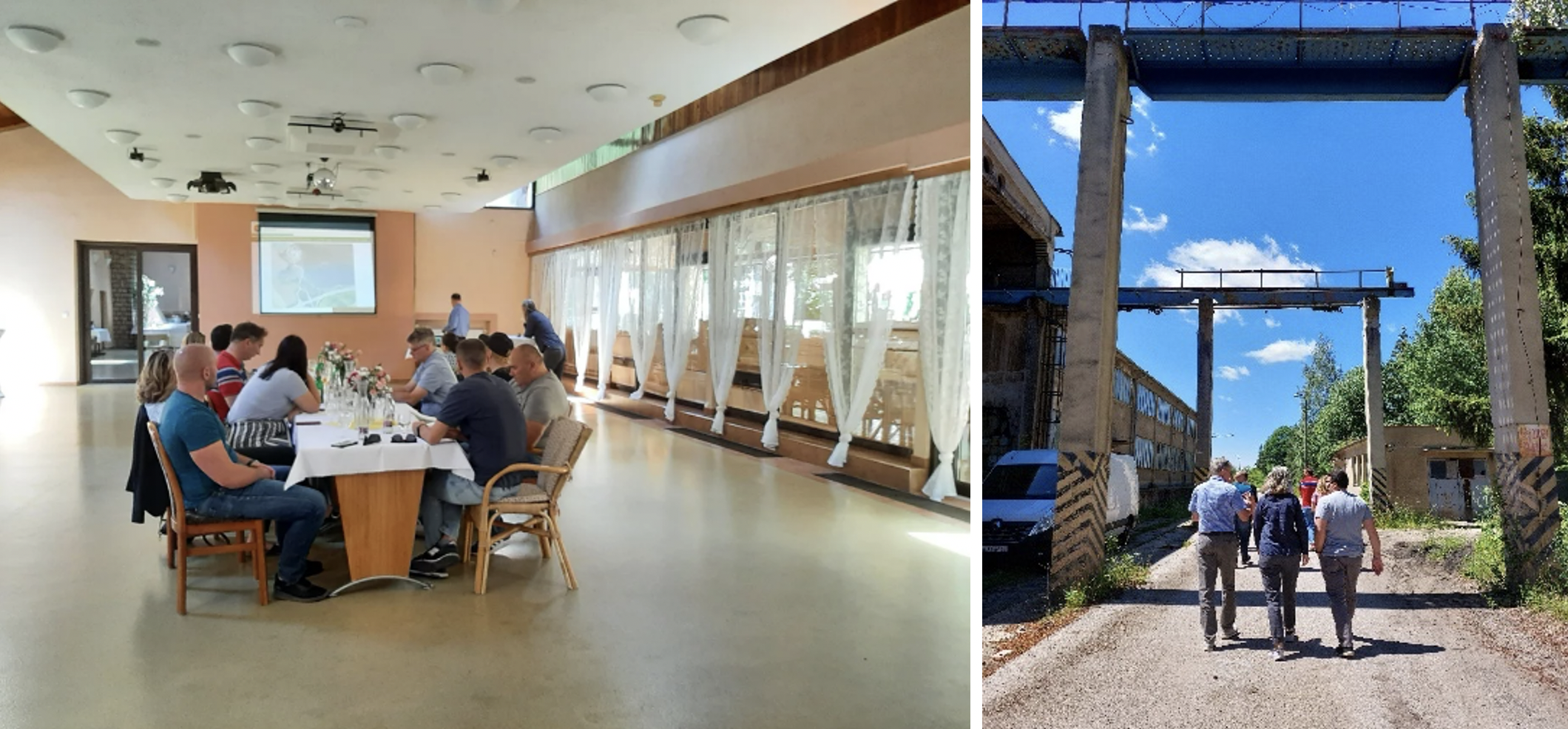ExchangeEU study visits
date: 14/07/2022
“The installations in Slovenia prove that the "make things happen" attitude works.”
A recap of the first exchangeEU study visit in Zasavje, Slovenia.
At the beginning of June, the exchangeEU programme’s first study visit marked the programme’s first steps from theory into practice. Delegates from Northern Hungary and Moravia-Silesia (Czech Republic) were invited by the hosting region of Zasavje (Slovenia) to share experiences on just transition processes. During the exchange, participants gained valuable insights, particularly about how to operationalise a Territorial Just Transition Plan (TJTP).

The study visit consisted of group workshops, site visits and other activities fostering mutual exchange. (Photos by George Stiff)
Main outcomes and lessons learnt
After two days of lively group discussions, motivating project presentations and diverse visits to local sites, the participants disclose these main learnings from a fruitful exchange:
- To successfully initiate a just transition project, it is crucial to first develop a strong needs assessment. Zasavje already demonstrates promising results by adopting this method.
- The visit to a successful business incubator in the area presented a useful practical example of economic diversification in a just transition process.
- Visiting a digital mining museum presented the participants with innovative ways of preserving the region’s mining heritage.
- Interactive group workshops helped to achieve more in-depth discussions on how to solve procedural or technical problems concerning the TJTPs’ implementation.
Overall, spirits were high and hopeful by the end of the exchange. Perhaps, the most significant of the study visit’s outcomes and learnings was to realise how important interregional communication and collaboration are to avoid known and common pitfalls across EU regions, or as one of the exchangeEU participants fittingly put it:
“The exchange showed me that problems or obstacles are really similar to each other among the countries. The visited installations in Slovenia proved to us that the "make things happen" attitude works.”
Róbert Kárász, Project Manager, Ministry of Innovation and Technology, Hungary.
An exchange focused on actionable outcomes, not just conversations
exchangeEU: second study visit implemented in Prievidza, Slovakia
From June 20th to June 23rd, the municipality of Prievidza in the Region of Upper Nitra in Slovakia welcomed delegations from Velenje in the Eastern Cohesion Region in Slovenia and Jiu Valley in Romania. The visit was part of the exchangeEU programme and focused on economic diversification and regional development.

Impressions from the workshops and site visit (Photos by Linda Beyschlag)
Transitioning towards a low-carbon future comes with major challenges on the ground. This study visit made that evident. During the discussions, all three regions illustrated how, in their attempt to phase-out fossil fuels, they are increasingly affected by depopulation, brain drain and mass layoffs of miners.
In search of solutions, the participating regions focused on strategies to support mining companies to diversify their activities and be more innovative. In Prievidza, they visited multiple sites, including an indoor tomato farm which effectively utilizes thermal energy from mining water and a future site for a center for district heating based on renewable energy sources.
A second approach discussed was reskilling workers and developing social programs for a just transition. In this context, the participants were introduced to two local projects:
- a regional contact centre which offers miners social, legal, health and psychological consultation as well as support in finding retraining courses.
- a dual education programme that allows high school students in Prievidza to do an apprenticeship in the development centre of an automotive supplier company.
Future opportunities for cooperation
Regardless of the multiple challenges identified during the exchange, the participants took the opportunity to learn from each other's experiences. Building on this first fruitful collaboration, they are planning to intensify their cooperation, especially on the following topics:
- district heating,
- territorial planning for land rehabilitation,
- re-skilling concepts,
- the implementation of energy communities, and
- engaging the local community through initiatives, such as the Welcome Future 2022 event organized by the municipality of Velenje in Slovenia
They also expressed interest in teaming up on programs and projects related to social and Just Transition issues. In the long run, they aim for a long-term partnership to share successes and failures and ensure the continuous transfer of know-how and cross-border cooperation. As emphasized by Anne Marie Bartalis, project manager at Jiu Valley Social Institute Association:
“This exchange will not end up in the talking stage. After we saw that we are facing the same challenges, we decided to maybe apply for different programs together.”
About exchangeEU
exchangeEU is the exchange programme for coal, lignite, peat, and oil shale (coal+) regions in transition in the EU. The first round of exchangeEU will take place in 2022. The second round will kick off in September 2022 and continue into 2023. Ongoing updates on the programme’s process and results, as well as future calls for applications, will be shared via this newsletter, on the project’s website and DG ENER’s Twitter channel (@Energy4Europe).
